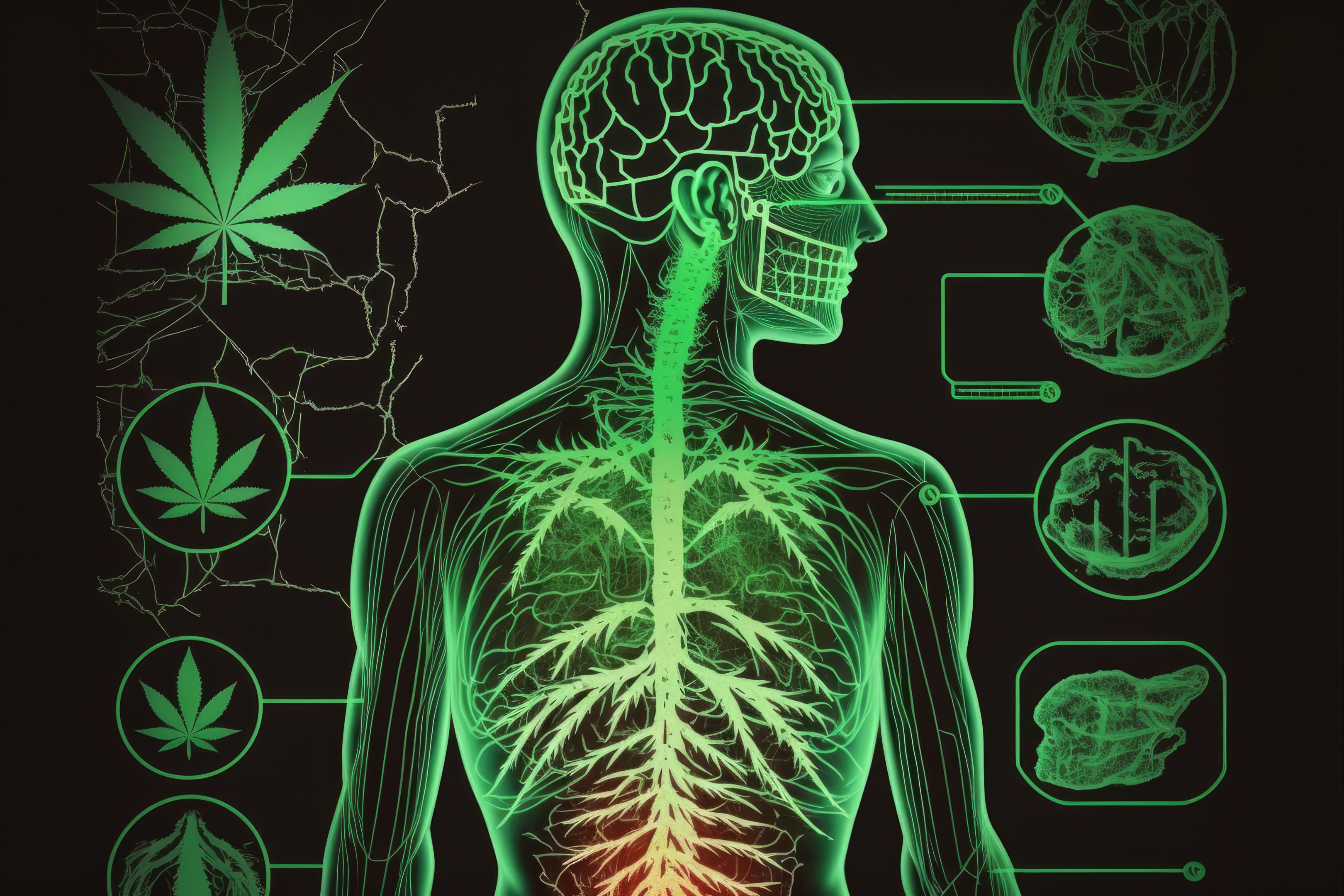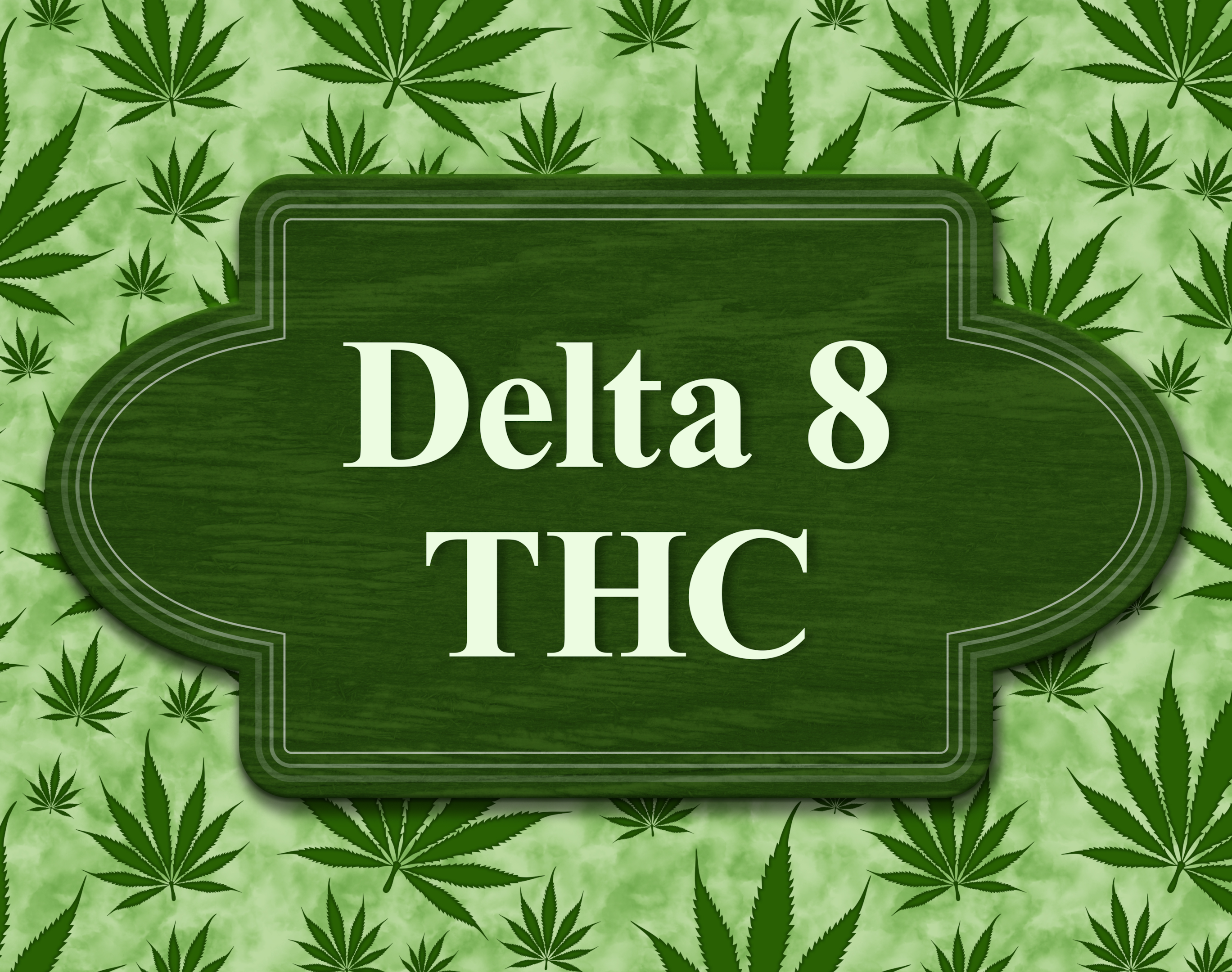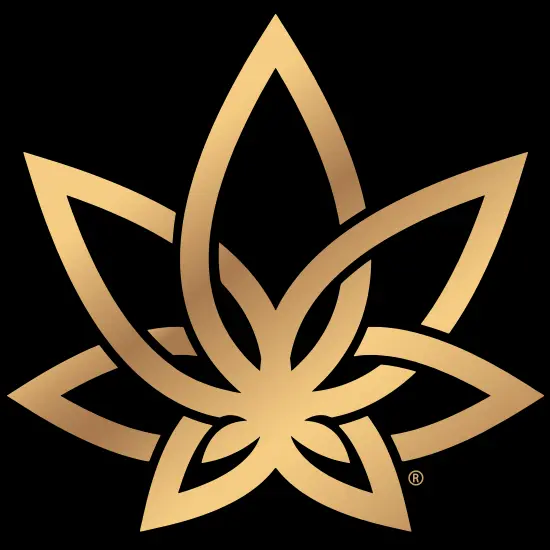Delta 8 THC, Delta 9 THC
Delta 8 vs Delta 9: What’s the Difference?
With the explosive growth of the cannabis industry and various cannabis products on the market, distinguishing between Delta 8 THC and Delta 9 THC becomes crucial for enthusiasts and connoisseurs alike. In today’s article, we’re exploring the difference between Delta 8 vs Delta 9.
Both compounds hail from the cannabis plant, yet they offer distinct experiences, legalities, and potential benefits. As pioneers in the field, we at 3CHI have dedicated ourselves to not only crafting high-quality hemp derived products but also to educating our community on these nuances.
With all the types of other cannabinoids these days, it can be easy to get a little lost in the sauce. So we want to pick on the two most popular and identify the difference (and some similarities) between the two.
Here at 3CHI, we only put out the highest quality and most tested products, ensuring safety and consistency for our customers.
Let’s get into it.
Understanding the Chemical Structure
The distinction in the chemical structure between Delta 8 and Delta 9 is subtle yet profoundly impacts their interaction with the body’s endocannabinoid system.
This difference is not just a matter of where the double bond is located; it influences everything from the psychoactive effects to the way these compounds are processed by the human body. Delta 8, with its double bond on the 8th carbon chain, and Delta 9, with its bond on the 9th, exhibit unique affinities for cannabinoid receptors, which can alter the intensity and quality of the experience.
Interaction with the Endocannabinoid System

Beyond their psychoactive capabilities, this variance in chemical structure may also affect the potential therapeutic benefits and safety concerns associated with each.
For instance, the nuanced interaction of Delta 8 with both CB1 and CB2 receptors suggests a potential for a broader range of effects, possibly influencing everything from pain relief to sleep patterns in ways that may or may not differ from Delta 9. This could explain why some users report Delta 8 THC as having a more calming and less overwhelming impact compared to the more potent psychoactive effects of Delta 9 THC.
Acceptance & Extraction
Moreover, the chemical structure of these cannabinoids plays a crucial role in their legal status and how they are perceived by public health officials and the cannabis industry at large.
While Delta 9’s potent effects have made it the subject of stringent regulations, Delta 8’s milder profile and high praise have allowed it to occupy a unique niche within the cannabis market. This distinction is critical for consumers to understand, especially those interested in the legalities and drug test implications of using THC products.
The extraction process for Delta 8 also underscores the importance of chemical structure in the production of cannabis products. Since Delta 8 is typically manufactured from CBD in hemp plants, this process highlights the innovative techniques used to isolate and enhance specific cannabinoids for consumer use. This not only demonstrates the versatility of the cannabis plant but also the cannabis industry’s commitment to exploring the potential of other cannabinoids.
In essence, the chemical structure of Delta 8 and Delta 9 is a foundational aspect that influences their legal status, effects, and the cannabis industry’s approach to product development. As we continue to dive into cannabis research, understanding these molecular differences will be key to unlocking the full potential of cannabis plants for both recreational and therapeutic use.
Delta 8 THC: A Closer Look

Delta 8 THC stands out in the cannabis industry not just for its unique effects but also for its versatility and accessibility. As a cannabinoid that is both psychoactive and legal under certain conditions, Delta 8 has quickly gained popularity among consumers looking for an alternative to Delta 9 THC.
Its milder psychoactive properties, combined with potential benefits such as aiding in sleep patterns and providing pain relief, make Delta 8 an attractive option for those seeking a different kind of cannabis experience. Due to its slightly softer effects, Delta 8 THC has been dubbed the nicer, younger sibling of Delta 9 THC.
More Accessible
One of the most remarkable aspects of Delta 8 THC is its accessibility. Delta 8 can be found in a variety of venues, including online stores and even gas stations. However, the convenience of purchasing Delta 8 at gas stations comes with a caveat. Consumers must be diligent in reviewing the packaging of such products to ensure they are of high quality and have been lab-tested.
The market’s rapid expansion has led to a proliferation of Delta 8 products, not all of which meet the rigorous safety standards set by reputable companies like 3CHI. Ensuring that Delta 8 THC products are accompanied by clear, accessible lab results can help consumers avoid those containing harmful chemicals or inaccurate levels of THC.
In addition to its recreational appeal, Delta 8 THC is also being examined for its potential role in the cannabis industry as a therapeutic compound. While definitive claims about its health benefits cannot be made, anecdotal evidence suggests that Delta 8 may offer a unique combination of mild psychoactive effects with potential wellness advantages.
This balance is particularly appealing to those who may be sensitive to the more intense effects of Delta 9 THC but still wish to explore the therapeutic potential of cannabis.
Delta 8 THC represents a significant development in the world of cannabis, offering a legal, milder alternative to Delta 9 THC with a wide range of potential uses and benefits. As the cannabis industry continues to evolve, the popularity of Delta 8 underscores the importance of innovation, consumer safety, and the need for ongoing research to fully understand the capabilities and limitations of this fascinating compound.
Delta 9 THC: Traditional Yet Complex with Further Insights

Delta 9 THC remains the most iconic and widely recognized cannabinoid derived from the cannabis sativa plant. Its psychoactive and intoxicating effects have not only made it a staple for recreational enjoyment but have also paved the way for its acceptance in the realm of medical cannabis.
In several states, medical cannabis programs allow the use of Delta 9 THC for patients, acknowledging its medical benefits in managing various conditions. This legal recognition of Delta 9 underlines its complex role in both the recreational and therapeutic landscapes.
The naturally occurring presence of Delta 9 THC in cannabis plants has been the subject of extensive study and fascination. Its potent effects on the human mind and body have driven cannabis research to explore not just the recreational aspects but also the potential health benefits associated with its use. The acknowledgment of Delta 9 in cannabis legislation across numerous states is a testament to its significance and the empirical evidence supporting its therapeutic potential.
The role of Delta 9 in the cannabis industry cannot be overstated. As the most well-known cannabinoid, it has shaped perceptions of cannabis use and continues to influence ongoing debates about legalization, regulation, and the potential for cannabis to contribute to health and wellness. The evolving legal status of Delta 9 THC reflects a growing recognition of its complexity and the need for a nuanced approach to cannabis regulation and use.
Delta 9’s naturally occurring presence in cannabis sativa plants has made it a cornerstone of both the cannabis industry and cannabis research, highlighting its enduring significance and the ongoing exploration of its full potential.
Potential Health Benefits and Concerns
When discussing the potential benefits of cannabinoids like Delta 8 THC and Delta 9 THC, it’s essential to approach the topic with a balanced perspective. Both compounds have been associated with pain relief, improvements in sleep patterns, and other potential health benefits. However, it’s crucial to underscore that these effects are not guaranteed and can vary widely among individuals.
The anecdotal evidence supporting the efficacy of THC products in providing relief from various symptoms is compelling, yet it’s important to navigate these discussions with caution, avoiding definitive claims about their effects due to the variability of individual experiences and the need for more empirical research.
Testing Methods
At 3CHI, we understand the importance of safety concerns associated with the use of Delta 8 THC and Delta 9 THC products. The chemical synthesis process used to produce Delta 8 THC from CBD, for example, underscores the need for meticulous attention to detail to avoid the presence of harmful chemicals.
This is why we implement rigorous testing protocols, both in-house and through reputable third-party labs, to ensure the purity and safety of our products. Our testing process is designed to detect not only the cannabinoid content but also any harmful chemicals that could be present as a result of the synthesis or extraction processes. This helps eliminate potential risks from dangerous solvents or residuals.
Furthermore, we pay close attention to concentrated amounts of cannabinoids in our products to ensure they meet legal requirements and maintain a safe consumption profile. The potential for adverse effects and adverse event reports associated with improper use or contamination of THC products drives our commitment to transparency and quality control.
By providing detailed lab reports and clear labeling on our products, we aim to educate our customers on the contents and proper use of our Delta 8 THC and Delta 9 THC offerings, mitigating safety concerns and promoting a responsible approach to consumption.
Raising Safety Standards
Our dedication to safety and quality extends beyond compliance with current regulations. It reflects our commitment to the well-being of our customers and the integrity of the cannabis industry as a whole.
By prioritizing rigorous testing and quality assurance, 3CHI sets a standard for excellence in the production and distribution of THC products, ensuring that our customers can enjoy the potential benefits of Delta 8 THC and Delta 9 THC with confidence in their safety and efficacy.
Legal Landscape Around the Cannabis Plant

The legal landscape surrounding cannabinoids, particularly Delta 8 THC and Delta 9 THC, is a complex and evolving field that requires careful navigation. The Farm Bill, also known as the Agriculture Improvement Act, has played a pivotal role in shaping this terrain.
The Farm Bill focuses explicitly on differentiating legal hemp — defined as cannabis plants with less than 0.3% Delta 9 THC on a dry weight basis — from marijuana, which exceeds this THC threshold. This distinction has opened the door for Delta 8 THC products to occupy a unique, technically legal status, as they are often derived from hemp that meets these criteria.
However, the legal nuances of Delta 8 and Delta 9 extend beyond their source. While Delta 9 THC remains federally illegal when derived from marijuana, its hemp-derived counterpart is technically legal under the Farm Bill. This has led to a surging market for Delta 8 THC products, which are highlighted for their milder psychoactive effects compared to Delta 9.
Despite this, the rapid growth of the Delta 8 market has prompted states to examine and, in some cases, enact their own regulations concerning the sale and use of Delta 8 THC, leading to a patchwork of laws that vary significantly across the country.
This intricate legal landscape underscores the importance of compliance and due diligence for companies operating within the cannabis industry.
At 3CHI, we prioritize staying abreast of legal changes and ensuring that our Delta 8 and Delta 9 THC products meet all applicable laws and regulations. By doing so, we aim to provide our customers with high-quality, legally compliant products that reflect the latest in cannabis research and innovation.
The Role of Cannabis Research in Understanding Delta 8 and Delta 9
Cannabis research plays a pivotal role in demystifying the complexities and unlocking the potential of cannabinoids like Delta 8 THC and Delta 9 THC. As we go deeper into the science behind these compounds, we gain invaluable insights into their effects, benefits, and safety profiles.
This ongoing exploration is crucial for advancing our understanding of how Delta 8 and Delta 9 interact with the human body, particularly the endocannabinoid system, which plays a central role in maintaining bodily homeostasis.
The future of such research promises to unveil even more about the potential benefits and applications of Delta 8 and Delta 9. As we continue to uncover the scientific mysteries of these cannabinoids, we pave the way for innovative cannabis products that can enhance well-being and offer alternative solutions for a variety of conditions.
At 3CHI, we are committed to supporting and leveraging this research to develop safe, effective, and legally compliant products that meet the evolving needs of our customers.
Navigating Drug Tests with Delta 8 and Delta 9 THC
One of the most pressing concerns for consumers of Delta 8 and Delta 9 THC products is whether these cannabinoids will trigger positive results on drug tests. Understanding how these substances interact with common testing methodologies is crucial, especially for individuals subject to workplace screenings or other forms of drug testing under federal law or specific cannabis laws.
Both Delta 8 and Delta 9 THC are derived from cannabis plants and share a similar molecular structure, which includes the psychoactive component that most drug tests are designed to detect.
Consequently, using products containing either cannabinoid can potentially lead to a positive test result for THC, the primary psychoactive compound in cannabis. This similarity underscores the importance of being aware of the potential for adverse events following the use of THC products, particularly in contexts where drug testing is a requirement.
For individuals concerned about drug tests, understanding the detection windows and the specific metabolites that tests screen for is essential. The duration these metabolites remain detectable in one’s system can vary based on several factors, including frequency of use, metabolism, and the type of test being administered (urine, blood, hair, or saliva).
Given the potential implications of testing positive for THC, consumers of Delta 8 and Delta 9 THC products should exercise caution and consider their personal and professional circumstances. It’s also advisable to stay informed about the evolving cannabis laws and regulations, which can impact the legal repercussions of drug test results. Awareness and knowledge are key to navigating the complex landscape of THC consumption and drug testing.
The Future of Cannabis Products: Innovations and Trends

As we look toward the horizon, the future of cannabis products, particularly those containing Delta 8 THC and Delta 9 THC, is poised for significant evolution. The ongoing advancements in how we understand, utilize, and regulate these compounds from cannabis plants are shaping a dynamic landscape that has the potential to impact medical use, recreational use, and community health.
Delta 8 THC is emerging as a key player in the cannabis market, offering a broad range of applications that extend beyond mere recreation. Its unique properties, which provide a milder psychoactive experience compared to Delta 9 THC, are attracting interest for their potential to enhance health behavior without the intense highs associated with traditional marijuana use.
This nuanced understanding of Delta 8’s effects is driving innovation in product development, aiming to cater to consumers seeking alternatives that fit a more diverse set of needs and preferences.
Meanwhile, Delta 9 THC continues to dominate the conversation around cannabis plants, continuing to be a staple in the cannabis community. However, the future of Delta 9 THC is closely tied to changes at the federal level, where shifts in legislation could redefine access, regulation, and research opportunities. As cannabis laws evolve, Delta 9 THC products may become more integrated into mainstream healthcare and wellness practices.
The market largely reflects a growing acceptance and interest in cannabis as a versatile solution for a variety of needs. Consumers are becoming more educated and discerning, prompting companies to innovate and ensure their products meet high standards of quality, safety, and efficacy.
This consumer-driven demand is fostering a competitive but creative market environment where the benefits of Delta 8 THC and Delta 9 THC can be explored in new and exciting ways.
To stay updated on all things cannabis and 3CHI, be sure to sign up for our newsletter here!
P.S. When you do, you get 5% off your first order and a free pack of gummies!

